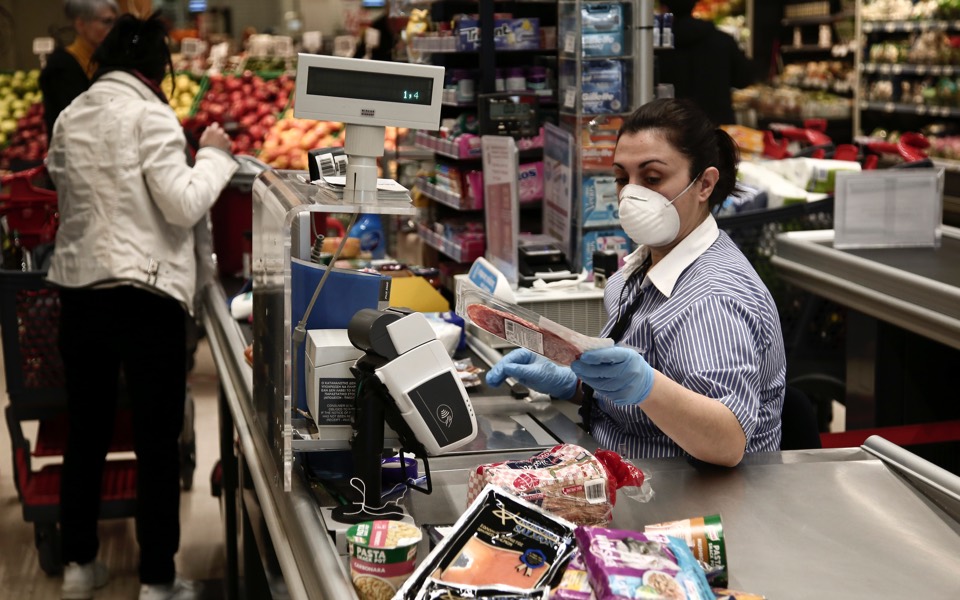Pandemic favors supermarket giants

Sklavenitis and Lidl Hellas appear to have benefited the most in the battle of supermarkets amid the pandemic, though the increased turnover recorded in 2020 due to the expansion of the client base has bolstered the entire sector.
The supermarket sector is calculated to have posted turnover of 11.34 billion euros in 2020, up 9.7% from 2019, with all players posting growth, though not at an equal rate.
The sales of Sklavenitis in Greece, according to sources from the company, grew about twice the average rate in the industry – i.e. around 19.5% year-on-year, amounting to €3.14 billion, from €2.63 billion in 2019. Sources say Lidl has recorded an annual growth rate of more than 8% in sales over the period from March 2020 to February 2021.
Kathimerini understands that among the other market players, it was only Galaxias that had a relatively high growth rate, around 14%, although it does not form part of the top five in terms of market share. AB Vassilopoulos, the sector’s number 2, posted a 4% increase last year.
Therefore, in total, the three biggest companies in the local sector (Sklavenitis, Vassilopoulos and Lidl), garnered 64.6% of the 2020 turnover, per researchers Nielsen IQ. The fact that these three firms also increased their combined market share by 1.4 percentage points compared to 2019 points to the fact that the pandemic will bring a new cycle of concentration in the industry.
The chains ranked fourth, fifth and sixth based on turnover, Mymarket, Masoutis and Galaxias, increased their combined trade by 7.6%, but their total market share slipped 0.4 percentage points to 21.4%. The rest of the sector increased its sales by 2.6% year-on-year, but their market share declined by one percentage point to 13.9%.
“We saw many new customers in our stores,” a senior Sklavenitis official recently told Kathimerini, which is attributed to the high number of hypermarkets (38 in total) that the chain has; consumers chose them for two mains reasons: to avoid the congestion that smaller stores entail and to avoid having to wait in long queues before entering, given the restrictions.
Another reason in the first half of 2020, before the ban on sales of commodities also found at specialized stores that were shut, was the offering of durable goods, as consumers would go to hypermarkets to buy clothes, furniture etc.





